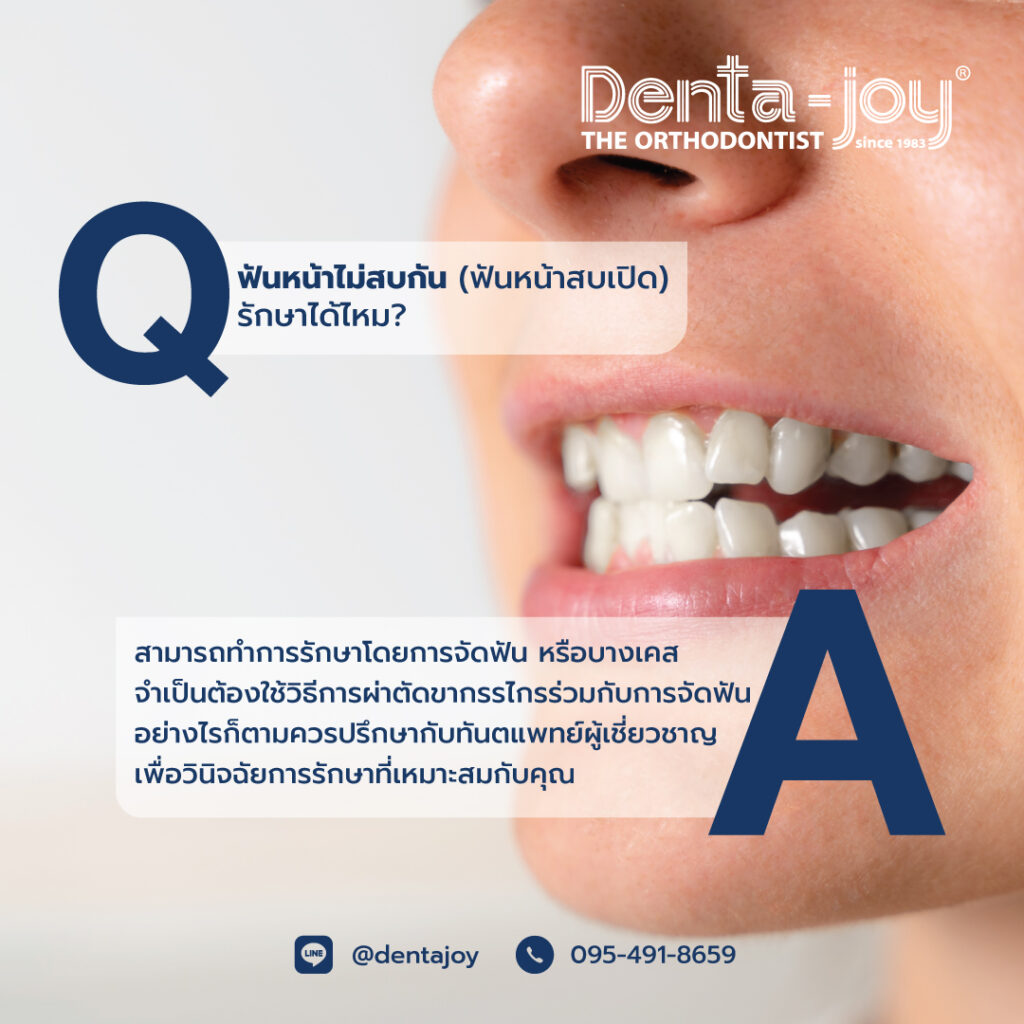
Teeth open bite is a common dental issue that many people are facing. Did you know that it not only affects your confidence when smiling or talking, but also hinders various everyday activities, especially chewing and articulating certain consonant sounds? This can lead to digestive issues and potential future problems in the gastrointestinal tract. But what causes this open bite, and how can dentistry address this issue? Let’s take a closer look.
Examine Yourself : What is Considered an Open Bite? Detecting an open bite (malocclusion) is relatively straightforward. It can affect both front and back teeth. For the front teeth, you’ll notice that the upper and lower front teeth don’t meet properly when biting down or smiling. As for the back teeth, they won’t touch when you close your mouth. You can perform a self-examination to see if you have this issue. If you identify a problem, it’s essential to seek proper treatment before the condition worsens.
Potential Consequences of an Open Bite While an open bite might seem like a minor aesthetic concern, it’s not just about appearances. It can impact various aspects of your oral health and daily life, including:
- Unclear speech and other speech-related issues.
- Chewing difficulties and abnormal swallowing, leading to improper food breakdown.
- Disruption of saliva circulation in the mouth.
- Increased risk of other dental problems in adjacent teeth.
Causes of Open Bite: What You Should Know Understanding the origins of your open bite and its potential consequences is crucial. Here are a few common causes:
- Genetic and Developmental Factors:
- Abnormal growth of the jawbones during development.
- Improper eruption of teeth, which prevents proper alignment.
- Childhood Habits:
- Prolonged thumb-sucking or pacifier use.
- Frequent tongue-thrusting against teeth.
- Trauma to the Jaw:
- Injuries that affect the jaw’s alignment.
Addressing Your Open Bite: Can It Be Corrected? The severity of an open bite can vary, and the treatment approach will depend on your specific case. There are several treatment options, ranging from necessary intervention to purely cosmetic enhancements. Your orthodontist will evaluate your condition and recommend the best course of action. Here are some possibilities:
- Orthodontic Treatment:
- Mild cases may be corrected with orthodontic appliances like braces or clear aligners (e.g., Invisalign).
- Severe cases might require surgical intervention to reposition the jawbones.
- Early Intervention:
- Children with open bites caused by habits might benefit from early orthodontic intervention and guidance to break these habits.
- Speech and Behavioral Therapy:
- In some cases, speech and behavior therapy might complement orthodontic treatment.
In conclusion, an open bite is a dental concern that can impact various aspects of your life beyond just appearance. If you suspect you have an open bite, consult a qualified orthodontist for a thorough evaluation and personalized treatment plan. Remember that early intervention can lead to more effective and efficient outcomes.
